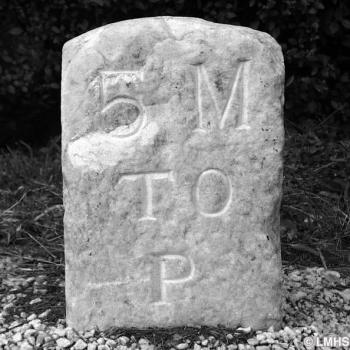Jesus is not the person you thought you knew
Preaching from the lectionary forces one to deal with texts that I might rather skip. I’m glad it didn’t skip this one. I would not have chosen it. I don’t like the gospel text from Matt 25:14-30. Or, at least I didn’t until I spent some time working on it. Jesus is not the person you thought you knew. Or maybe he is, and that’s why this parable seems so messed up.
Master, I knew that you were a harsh man
As the third servant speaks to the master in this parable, the servant reveals the nature of the master. The master in response does not deny it. As I read this parable I cannot see that statement being true for Jesus. Jesus, who says of himself, “come to me…I am gentle and humble” (Matt 11.28-20). And in the parable following the one in Matthew 25.14ff comes a story in which Jesus is “the least of these” (Matt 25.45).
We get ourselves into this bind when we assume Jesus is a “lord” like a master is the “lord of the manor.” Out of a sense of devotion, we want to see the authority figure as a stand-in for Jesus. Jesus is my master. In the parable there is a master. Therefore, Jesus must be the master in the parable, even if he is known to be a harsh man.
But we make His love too narrow
By false limits of our own;
And we magnify His strictness
With a zeal He will not own.(There’s a wideness in God’s mercy, Frederick W. Faber, 1814–1863)
Complexify the Parables
David Henson turns the first parable in Matthew 25 on it’s side and re-imagines the story of the bridesmaids and the oil lamps. Using that same perspective on the parable of the talents reveals a bolder possibility.
This story of the three servants has often be used to encourage us to use our “talents” for God. The parable of the talents is not about wealth and investment. It is not about making the most of the gifts of our resources, given to us by “the master.” It is not a suitable passage for stewardship fund drives. Because, if is any of that, it also leads to a heretical prosperity gospel. If it is any of that, it says that Jesus is a harsh man. If the previous assumptions about this parable are true, then it means that it is by our work (investment and usury) that we receive blessing and status in God’s realm. That’s not right.
The talents in this passage represent large sums of money totaling the life savings of a number of working people. The wealthy master is more like a Wall Street banker than a landowner. From the Greek New Testament’s wording we find the first two servants traded and invested, or likely practiced usury, a practice forbidden in the Law of Moses. The third servant also knew this master was unjust and harsh. So instead, he buried the money in the land, which is God’s (Leviticus 25.23). As Jesus warned his disciples in Matthew 24.9, “they will hand you over to be tortured and will put you to death, and you will be hated by all nations because of my name”. A fate which awaits the third servant, who is taken out from the city to a darkened place filled with anguish and pain (fyi – outer darkness and gnashing of teeth does not automatically refer to damnation or eternal torment).
You knew that I was a harsh man

When the master repeats this back to the servant, there’s an implied threat in the tone. There’s also some consternation. The third servant has considered the consequences. He has not relented. He has chosen not to play into the empire’s game. The empire has a way of manipulating our anxieties and making us conform. Even when the third servant reveals he knows the kind of person the master is, it does not change his course of action. He refuses to go along, to play the game.
In refusing to play the game, the third servant becomes like many political prisoners, disappeared journalists, assassinated social justice profits. Think Nelson Mandela, Angela Davis, Stephen Biko, Martin Luther King, and of course, Jesus. Knowing the profile of the master, considering the consequences, they refuse to play the empire’s game.
In the parable, Jesus is not the master. Jesus is the third servant.
Consider the times when following Jesus meant you had to walk a different path. As followers of Jesus, we’ve been seeking alternative paths for centuries. Practicing mutually rather than individuality. Making peace rather than participating in warfare and violence. Being conscientious to refrain from injustice woven into business, society, and politics. It is not easy, and as our desire to be conformed to Christ rather than the world around us, may not be applauded or rewarded.












